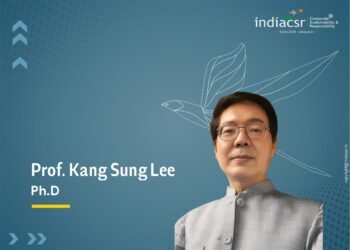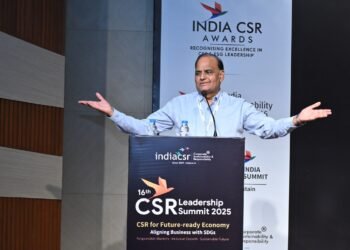Tata Steel’s manufacturing facilities and mining operations in the tribal belts of Jharkhand and Odisha in the eastern part of India are central to the business. The region is home to many tribal communities, most prominently the Ho, the Santhals, the Mundas and the Oraons.
To protect and preserve the identity of indigenous populations, the it has formed the Tribal Cultural Society and the Tribal Culture Centre, and has been working towards comprehensive corporate social responsibility programmes that have benefitted the communities socially and culturally.
In an interaction with Tata Review; Biren Bhuta, chief of CSR at Tata Steel, elaborates on the Tata Steel’s role as a catalyst in preserving and promoting tribal culture. He feels that To protect and preserve the identity of indigenous populations is important. Excerpts:
How do the tribal initiatives of Tata Steel pan out?
Tata Steel has been lucky to be present in geographies where the demography is predominantly tribal; other companies do not have this opportunity. In Jharkhand, we are located among four major tribes. Working with tribal communities in Jharkhand and in Odisha means we can claim to know a little bit about them.
What led to the various initiatives involving the tribal communities?
We found that the tribal communities don’t have a unified voice. They are scattered and many of them live in forests or on the margins. These tribes comprise fiercely proud and independent people. I think they have real intangible values, not just for their own community but for civilisation and humanity as a whole.
Some may call me extreme, but I say, “If you want to save the world, save the adivasi (member of a tribal community).” They are the last bastion of sustainability; they are its custodians. It’s fashionable to talk about sustainability, but these people are naturally sustainable. Even when they hunt, they will do so only as much as they want; that’s the difference between a need-based economy and a greed-based economy.
Cultural loss is an intangible thing, and intangibles are always much more difficult to comprehend. We have created a platform where all these intangibles are shared, preserved and promoted.
Many people think tribal culture is all about song and dance; actually it’s not. For them, it is a way of life. You notice that everyone is dancing; there is no protagonist in that dance. What we have here is an egalitarian society.
Can you give us an overview of the work your team is involved in?
We do a lot of work around tribal education; around languages and their scripts and literature; on musical instruments, dance, tribal sports, customs and religious motifs; and on tribal heroes. To sum it up, we have been doing work around tribal identity.
Identity is important; lose it and people become commodities. The loss of identity is the loss of culture — the greatest loss any society can suffer. One can lose wealth, one can become homeless, one can become whatever, but if you lose your culture, you have lost everything.
We believe language is essential if you want to preserve the identity. Many tribal languages don’t have scripts; they are just oral traditions. They have survived a few thousand years but they may not survive the next 10-20 years because of the onslaught of globalisation. A language disappearing is one thing, but the disappearance of the wisdom engrained and embedded in that language is a colossal loss.
What do you see as the way forward?
The way forward is for communities to start owning these initiatives; we are just the catalyst. We may be one of the few corporate houses, not just in India, but around the world, working on preserving and promoting tribal culture.
You may also like:
- Children getting education in the schools make me passionate about CSR, Says Sandra Shroff, Vice Chairperson, UPL Limited
- Thomson Reuters’ CSR initiatives aligned with sustainable development goals, says Yogen Karumbaya
- Vishwaraj Infrastructure implementing path-breaking project of 24×7 water supply for Nagpur: Arun Lakhani, CMD
- It is Essential to Make Society Aware of Immense Talent That Specially-abled Individuals Have: Dr Radhike Khanna
- I Will Contribute Towards the Society in Whatever Capacity I Can: Sanjay Dalmia, Chairman, Dalmia Group






















